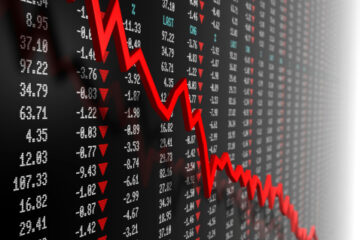How Pikachu and friends can make you money.
When it comes to what you consider worthy of investing your money in, it’s unlikely that you’d consider your son’s Pokémon cards to be a potential goldmine.
After all, the brightly-colored trading cards have been around since 1996 and seem to be strictly the domain of young kids, who create decks with them to participate in games against other players. It’s known as a trading card game (TCG), so players also frequently trade with others in hopes of improving their decks and beating more opponents.
But the truth is that many adults collect the cards too, both to play the popular game and to invest in a hobby that could one day make them quite a bit of money.
For instance, in February of this year, a rare Pokémon card only given away to the winners of a card illustration contest in Japan (only 39 were ever manufactured in total) sold for just under a million dollars. Called “Pikachu Illustrator,” the card sold only ranked a 7 out of 10 on quality of mint condition, meaning that other copies of the card in better condition could fetch an even higher price.
A rare Japanese Pokémon card that sold for $135,000.
That sale wasn’t the only one to fetch such a high price, either, and it certainly won’t be the last. Another Pokémon Illustrator card sold for $375,000 in February as well, and a first edition English language card sold for $369,000 in December of 2020 via Goldin, a marketplace that specializes in the buying and selling of collectibles.
Why are Pokémon Trading Cards Worth so Much?
Much like the wildly popular collectible card game “Magic: The Gathering,” the “Pokémon Trading Card Game” has been around for a long time. But while “Magic” is set in a mature fantasy world and can be very challenging, “Pokémon” is a bit gentler and clearly geared at a younger audience.
It was also a part of a much bigger strategy to build a powerful franchise for young consumers, and a massive success right out of the gate. The card game debuted in 1996, just like the video games of the same name.
Today, Pokémon is believed to be the highest-grossing franchise in the world, blasting past Star Wars, Hello Kitty, and even Mickey Mouse at $110 billion U.S. And the trading card game continues to thrive 26 years after its debut, thanks to a highly active competitive scene that hosts a yearly world championship. Teams that take first place can win as much as $100,000.
With such an active community still participating in playing the “Pokémon Trading Card Game” (and with such high stakes for those who choose to compete), it’s no wonder fans chase after rare cards. And since what cards you get are a matter of luck because they come in a sealed package, getting a rare card in a pack today could make you some serious money if you choose to sell it later down the line.
Building a Business on Pokémon Cards
Some even take it one step further by turning the cards into a part- or full-time business, buying them with the intent of “flipping” the cards to make a profit. Social media outlets from Reddit to YouTube are packed with people who currently do so, many advising the best way to start your own business on the foundation of the trading cards.
Buying Pokémon cards is like playing any other financial market in that it’s a gamble. New series of cards are made each year, and each set will have certain rare cards collectors are hoping to find.
The odds of getting them are slim, which is why people spend more buying full boxes of cards in hopes of upping their chances. But even if you get your hands on rare cards, they won’t be worth more than a few hundred dollars at the time. It’s later down the line when the series is out of print that prices will start to go up.
The Dangers of Buying and Selling Pokémon Cards
As is with anything that is wildly popular and makes a ton of money, there are also plenty of scammers out there trying to rip collectors off.
As recently as last year, authorities seized 7.6 tons of fake Pokémon cards en route to the Netherlands. And YouTube celebrity Logan Paul, who dropped $3.5 million on some boxes of sealed, authenticated cards he thought were going to be a great investment. Instead, he opened the boxes to find them stuffed full of G.I. Joe cards.
The Pokémon Company has tried to combat the issue, saying it planned to limit card sales in Japan by using a lottery system, but it’s got a long way to go before it can find a way to control a problem of such magnitude. After all, why sell illegal drugs when you can just sell a first edition Shadowless Holo Charizard instead?


